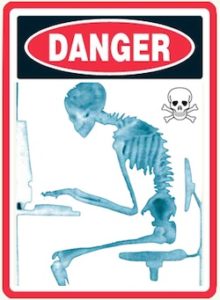It’s the time of year again that we need to talk about the importance of Vitamin D for your health. As the days start getting shorter and the temperatures start dropping we spend more and more time huddled inside for warmth. As these winter months drag on our energy begins to drop and we begin becoming susceptible to illnesses (flu season). A major reason we start feeling this way is that our bodies Vitamin D levels begin to drop.
Lets cover some of the science behind Vitamin D first. 
Despite the name, vitamin D is considered a pro-hormone and not actually a vitamin.
Vitamins are nutrients that cannot be created by the body and therefore must be taken in through our diet.
However, vitamin D can be synthesized by our body when sunlight hits our skin.
It is estimated that sensible sun exposure on bare skin for 5-10 minutes 2-3 times per week allows most people to produce sufficient vitamin D, but vitamin D breaks down quite quickly, meaning that stores can run low, especially in winter.
Recent studies have suggested that a substantial percentage of the global population is vitamin D deficient.
Now why is Vitamin D important
Vitamin D assists in the absorption of calcium and promotes bone mineralization, which may prevent or slow the progression of osteoporosis. It also helps to strengthen the immune system and protect against a number of serious diseases, including rickets and osteomalacia. Research suggests vitamin D may also provide protection from hypertension, psoriasis, several autoimmune diseases (including multiple sclerosis and rheumatoid arthritis), and reduce the incidence of fractured bones. In addition, growing evidence has demonstrated its important role in defending against cancer (studies link a deficiency of vitamin D to as many as 18 different cancers).
Signs of Vitamin D Deficiency include:
- Getting Sick often
- Fatigue and Tiredness
- Bone and Back Pain
- Depression
- Impaired Wound Healing
- Bone Loss
- Hair Loss
- Muscle Pain
There are numerous studies showing that increased Vitamin D levels increase immune function and help protect us from illnesses, including the flu! https://grassrootshealth.net/blog/vitamin-d-prevent-flu-epidemic/
According to the CDC 70% of the elderly population is deficient in Vitamin D which puts them in extreme risk.
Now how do we correct this during the cold winter months. Thankfully Vitamin D supplements are relatively affordable. Vitamin D is a fat soluble vitamin which means that you don’t just excrete what you don’t need. Excess is stored in the body and therefor can be tested with a blood test. US recommendations are a blood level of 30 ng/mL but many studies support the benefits for levels of 60+ ng/mL. If you don’t want to have your blood vitamin D levels then consuming 5,000 iu per day for Vitamin D3 during the winter months would be a good place to start.
Ensure that any Vitamin D supplement you take is D3 (cholecalciferol) vs D2 (ergocalciferol) as D2 is plant Vitamin D which is cheap to produce but to effective on humans. When purchasing supplements only purchase from companies that you trust.



